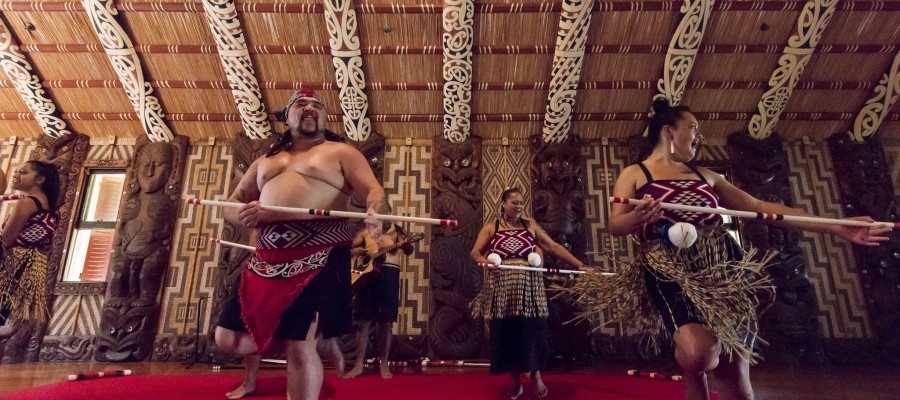Maori Words and Phrases in New Zealand
Here you are going to find a list of Maori Words and Phrases in New Zealand: the Maori language, known as "Te Reo" is still used in places throughout the country.
Learning a Little Te Reo Māori with Kirra Tours
New Zealand isn’t a country where everyone speaks Te Reo Māori fluently, and you don’t need it to get by—but its influence is growing, especially in some regions. Rotorua, for example, is the first city in New Zealand to have all its street signs in English and Te Reo Māori, showing the country’s commitment to preserving and celebrating its indigenous language.
Growing up in New Zealand, most education is in English, but there’s always the option to learn in Te Reo Māori as well—a wonderful opportunity to connect with the country’s culture. On a Kirra Tour, we like to share a taste of that heritage with our passengers. From teaching a few useful words and phrases to offering the chance to visit Tamaki Village in Rotorua for a full cultural experience, we make it easy and fun to engage with Māori history and language.

Common Māori Words You’ll Hear on Your Tour
Kia Ora
You’ll hear this one a lot—probably at least twice a day! It’s a versatile Māori greeting that can mean hello, thank you, cheers, welcome, and more. Locals use it widely, especially in tourism, and it’s one of the first phrases you’ll learn on your Kirra Tour.
- Aotearoa - This is the Māori name for New Zealand, meaning “The Land of the Long White Cloud.” It was named by Kupe’s wife, Kuramārōtini, when she first saw the North Island.
- Kai - A very important word: it simply means food!
- Hangi - A Hangi is a traditional Māori feast cooked in the earth. A pit is dug, a fire is lit, and meat and vegetables are placed in a woven flax basket, then covered with layers of flax and left to cook for several hours. If you join us at Tamaki Village, you’ll get to enjoy this unique, authentic experience for dinner!
- Marae - A Marae is a communal or sacred place used for social and ceremonial purposes. It’s customary to remove your shoes when visiting.
- Maunga - Maunga means mountain—and you’ll see plenty of them during your travels across New Zealand.
- Tapu - Tapu refers to something sacred. It often indicates something that shouldn’t be touched or interfered with, due to spiritual or cultural significance.
- Whānau - Whānau translates to extended family—like the family you’ll find among your fellow passengers on the Kirra Tours bus.
- Wharepaku - An essential word to know: it means toilet!
- Ka Kite Ano - This phrase means “see you later,” a friendly way of saying goodbye that implies you’ll meet again soon.
Learning a few Māori words is a small but meaningful way to connect with New Zealand’s rich culture while on your Kirra Tour. Whether it’s greeting locals with Kia Ora, enjoying a traditional Hangi, or discovering the stories behind Aotearoa’s stunning landscapes, these little insights make your journey even more memorable.
